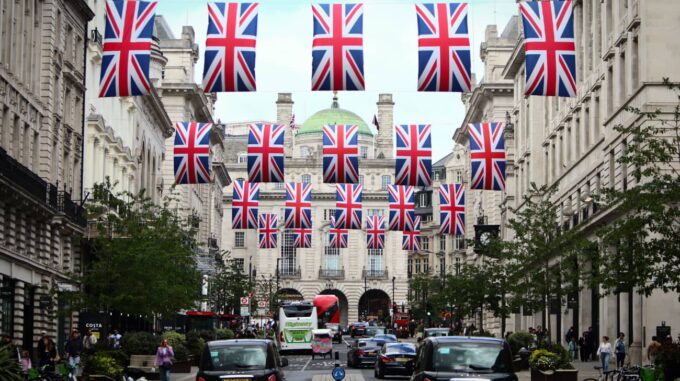Britain Responds to Russian Drones: Imposition of New Extensive Sanctions Amid Growing Tensions in the Ukraine War

On the night of May 17 to 18, when Ukraine was once again subjected to a massive drone attack, the UK government promptly reacted to these provocative actions by Kremlin, announcing a significant expansion of sanctions against Russia. A statement from the British Ministry of Justice and the Foreign, Commonwealth & Development Office emphasizes that these efforts are aimed at increasing economic pressure and halting military resource supplies from Russia, thereby restraining its aggression and preventing further escalation of the conflict. Details of the new sanctions are so broad that they cover over 100 entities across key sectors of the Russian economy. Notably, entire military, energy, and financial structures are targeted, along with entities engaged in information warfare against Ukraine and the West more generally. Additionally, the sanctions include blocking supply chains that support Russian weapon systems, such as the Iskander missile technology, which holds strategic significance for the Kremlin. A particular focus of the new sanctions package is the SDA agency, which funds and coordinates information operations aimed at destabilizing democratic processes and undermining the rule of law both in Ukraine and globally. Accordingly, sanctions have been imposed on 14 senior officials of this agency, which will cut off their access to the international financial system and reduce the effectiveness of Kremlin propaganda resources. Another key aspect is restrictions on Russian financial institutions attempting to evade existing sanctions. Covering 46 banks and non-banking structures, including the Saint Petersburg Currency Exchange and the Russian Deposit Insurance Agency— which provides guarantees for banks—these measures aim to thwart Russia’s efforts to circumvent economic restrictions. The package also includes 18 vessels of the so-called "shadow fleet," transporting Russian oil amid international bans and restrictions. In addition, sanctions target individuals: British citizen John Michael Ormerod, involved in purchasing vessels for Russia’s "shadow fleet," as well as two Russian tanker captains aiding his activities. This demonstrates coordinated international support for combating Russian maritime logistics and transit operations. UK Foreign Secretary David Lidington emphasized in an official comment that Putin's recent actions shed further light on his true intentions as a nationalist and aggressor. "We call on him to immediately agree to a full ceasefire to start a fair and lasting peace process," he stated. Simultaneously, the UK will intensify cooperation with international partners, particularly in efforts to combat circumventing schemes for sanctions. Discussions are underway regarding proposals to lower the price cap on Russian oil, making it less attractive on global markets and further constraining the financial resources of the Putin regime. Regarding the military situation, Ukrainian intelligence reports that on the eve of the missile attack on the night of May 18, Russia conducted a total of 273 drone strikes, of which 88 were intercepted, and another 128 were registered as “location lost,” highlighting the high tension on the frontlines. Meanwhile, the European Union has approved its 17th sanctions package in response to Russian aggression, expanding restrictions in the financial and energy sectors. As preparations for the 18th package begin, discussions are ongoing about additional limitations on Russian banks and supporting companies from non-EU countries that operate in favor of Russia’s military machine. EU Commission President Ursula von der Leyen confirmed that the upcoming sanctions package will further target Russian financial institutions and compel Putin’s regime to reduce its ability to use the economy as a weapon. Overall, the actions taken by the United Kingdom today exemplify international unity in the fight against Russian aggression. They demonstrate the steadfast commitment of Western countries to assist Ukraine, halt Kremlin’s expanding influence, and support the long journey toward peace, justice, and security in the region and globally.

